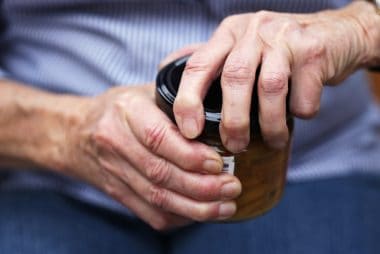“The easy diseases have largely been solved. It gets harder and harder as we go after new treatments for ever more challenging diseases”. This statement, used to justify and underpin drug prices in an article recently published by the BMJ[1], got me thinking: what does it mean for a disease to be ‘easy’, and how do we define when a disease is ‘solved’? Do patients with so-called ‘easy’ diseases consider them to be easy…and have we provided the solutions that would enable them to label them as such i.e., to live a pain and symptom-free, long lives?
Maybe there are some examples where that’s the case. As an industry and a community, we’ve made incredible progress treating some diseases: certain types of infection, certain types of cancer. Checkpoint inhibitors, antibiotics and vaccines are miracles of the modern day and should be rightly celebrated.
But let’s look at chronic diseases such as autoimmunity and fibrosis, which we have an active interest in at Istesso. It’s not uncommon for me to hear that rheumatoid arthritis (RA) is a crowded market, and that it would be hard to make improvements to existing treatment. There are three approved categories of disease-modifying RA drugs: the conventional generics such as methotrexate, biologics (such as Humira), and targeted drugs-the JAK inhibitors. Since coming to market these drugs have offered a step-change in the treatment of disease. But each of them has an efficacy ceiling: fewer than 25% of patients who take them will experience a 70% improvement in their symptoms, and 75% of patients experience ongoing symptoms and pain, and a poor quality of life.
If I was one of the many RA patients who continue to suffer from the disease even with the existing drugs, I certainly wouldn’t consider my condition to be ‘solved’ – and I certainly wouldn’t be thinking it was an easy disease to treat. In fact, if I was still experiencing symptoms and/or flares, losing response and having to be switched between multiple treatment options, I wonder if I’d really consider my treatment to be fundamentally effective. And I’d probably be disappointed and surprised to hear the common view that the current drugs are so effective that there’s little point developing new ones.
National newspapers share ‘miracle drugs’ as headlines but at what point do we stop and question what this truly means for the daily lives of patients living with long-term, debilitating conditions? As an industry and a community, we need to look beyond the numbers to understand what patients need. Categorising diseases as easy or solved stifles creativity and limits what we can achieve for patients. Let’s do better.
[1] https://www.bmj.com/content/380/bmj-2022-071710

